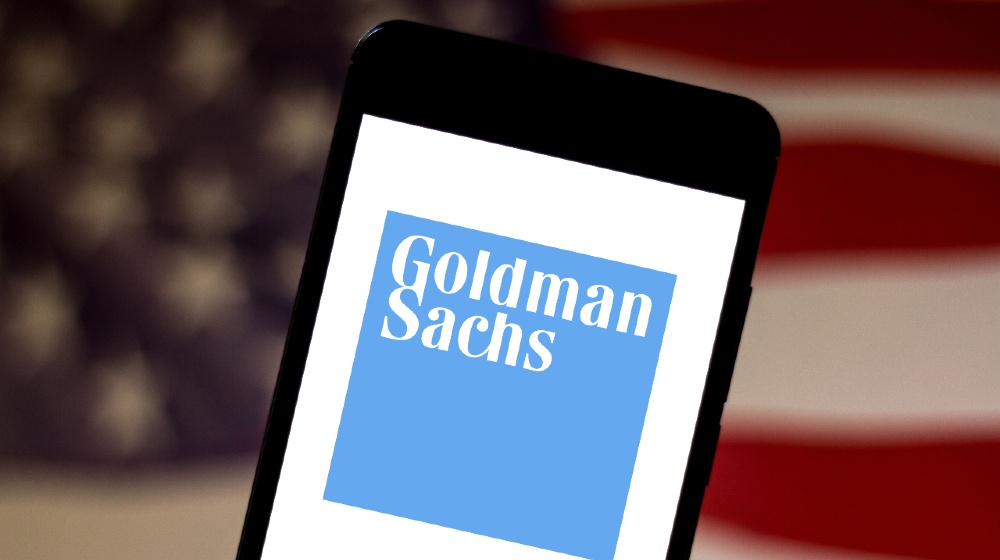Business
Goldman Sachs Doubles Profits in 3rd Quarter

Goldman Sachs posted 3rd quarter results that crushed analyst estimates. Goldman Sachs profits made $3.62 billion, with a staggering $9.68 a share. This is almost double the estimate of $5.57 per share. Companywide revenue went up 30% to $10.78 billion. This is $1 billion more than estimates. Leading the way were trading and asset management, in particular bond trading.
RELATED: Goldman Sachs’ Advice: Investors to Short the Dollar Now
Compared to the second quarter, Goldman saved fewer dollars to cover future bad loans. It saved only $278 million in the quarter compared to $1.59 billion last time. As Goldman Sachs’ consumer lending is smaller compared to others, it’s less exposed to bad loans.
Profitable Pandemic
While 2020 saw the global economy crash and burn, Wall Street firms survived. Not only did they survive, but they also managed to generate record profits. Even with remote work, Goldman’s securities-trading desks are full of life. Big company bankruptcies are unheard of, and depositors kept their money intact.
The PPP loans guaranteed last spring are almost paid back. Any excess profits made their way to reserves to cover expected loan losses. This proved only one thing: the pandemic affects only the small businessman. Shops closed, millions laid off, spending declines. Meanwhile, Goldman Sachs’ third-quarter reiterates its standing as big money.
Unlike the previous crash in 2008, 2020 is more relaxed and ready. 12 years ago, investors pulled their money as banks got exposed. Today, nobody is withdrawing their money, opting to keep it safe while the pandemic rages. As a result, the top five U.S. banks generated $23 billion in third-quarter profits. Capital ratios all remained positive. Goldman Sachs CEO David Solomon remarked: “The markets continue to benefit from the unprecedented monetary and fiscal support by central banks and governments globally.”
Trade is Where it's At
The smaller exposure to loans helped Goldman Sachs stay in the black. Goldman has $112 billion in loads versus JP Morgan’s $1 trillion. As such, it is less vulnerable to defaults. Add the fact that the former prefers trading, which enjoyed a banner year. Investors took advantage of low-interest rates to engage in stock buying. And most came out winners. Wall Street recovered from the shortest bear market in years. Now, the bull run is slowing down a bit. But not before enjoying record highs among notable stocks like Amazon, Tesla, Zoom, etc.
Meanwhile, the bank’s own portfolio rallied along with the stock market. Also, Goldman’s trading revenue increased by 29% from last year. Underwriting fees for corporate stock and bond offerings increased by 60%. Other banks caught on the trading fever and invested too. JP Morgan enjoyed a 30% bump in trading, while Citigroup reported a 17% increase. Bank of America hedged, and only reported 4%. BoA CFO Paul Donofrio noted: “Many of our competitors will, say, take more risk. Clearly, that can create some differences in relative performance.”
“One of Our Favorite Stocks”
Stockwise, big banks had mixed results, with Goldman emerging the winner. Its shares rose 0.6%, while Bank of America and Wells Fargo & Co., lost more than 5%. Those two banks depend more on consumers, and both reported big drops in quarterly profit.
Oppenheimer analyst Chris Kotowski says Goldman is a proven performer. “Goldman remains one of our favorite stocks,” he said. “Its loan portfolio is small and of very high quality compared to those of other large bank holding companies. It has minimal exposure to credit cards and small business, which we see as the biggest COVID-19 risks. But it has upside leverage to more active capital markets.”
Malaysian Scandal Resolution
Despite the rosy outcome, there are matters left to resolve. The firm remains embroiled in a dispute with a Malaysian investment fund. In 2018, Malaysian prosecutors filed charges against three Goldman Sachs units. They claimed the units misled investors over bond sales totaling $6.5 billion. This was the amount the bank raised for sovereign wealth fund 1MDB. Later, U.S. and Malaysian authorities say about $4.5 billion went missing from the fund. The heist was an elaborate global scheme. It even implicated former Malaysian Prime Minister Najib Razak. The Goldman Sachs executives pleaded not guilty to charges.
Earlier this year, Goldman faced the music. It agreed to pay $3.9 billion to Malaysia to absolve it from all criminal and regulatory proceedings. Negotiations with the U.S. Justice Department are ongoing over a potential $2 billion fine.
Watch this as CNBC reports that Goldman Sachs' third-quarter earnings beat estimates:
Are you a fan of big banks like Goldman Sachs? With a performance like Goldman’s during the pandemic, do you trust them for your investments? Let us know what you think by sharing your thoughts below in the comment section.
















2 Comments
nO BECAUSE THEY contribute enormous amounts of money bribing politicans
HOW MANY MORTGAGE LOANS OF THE COMON WORKER DID THEY FORCLOSE ON?